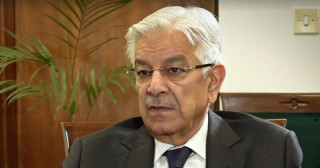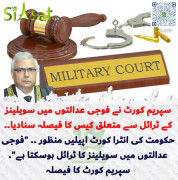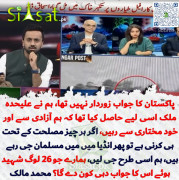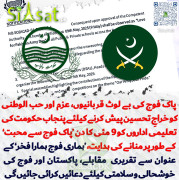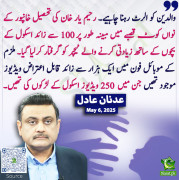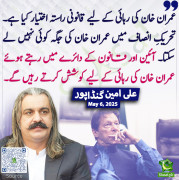1 ummah
Councller (250+ posts)

More than a century ago, Karl Marx wrote that despite its support for technical improvements, “The capitalist system works against a rational agriculture … a rational agriculture is incompatible with the capitalist system.”
The food and farm crises we see today completely confirm that judgment. A system that puts profit ahead of human needs has driven millions of producers off the land, undermined the earth’s productivity while poisoning its air and water, and condemned nearly a billion people to chronic hunger and malnutrition.
Socialism is an economic theory or idea that states that the government or the state should be in charge of economic planning, production and distribution of goods. It is the morally superior social system as compared to capitalism despite its dismal record of failure in the real world. This contrasts with capitalism where free markets predominate and property is privately owned. It is a morally bankrupt system despite the prosperity it has created to some extent.
The subject of capitalism has strong arguments both for and against. The basic philosophy of capitalism is not so bad — still capitalism has more problems than its advantages. Rampant capitalism is bad for everyone. Capitalism as it is practiced undermines democracy; it favors those in power and keeps the lower class sinking to the bottom. The gap between rich and poor is widening across this world of capitalism. According to critics of the capitalism inequality is a sure sign of the moral bankruptcy of “the system”. Ideology of free-market liberalism and property-based democracy remains a continuous license for cultural imperialism and, the institutionalization of both political and economic domination and exploitation of the weaker partners through their internal agents. The capitalism presents its solutions based purely on short term economics. The producer always acts to maximize his profit. He can use huge advertising budgets to persuade customers to pay more for inferior products.
He can buy off politicians to rig the laws in his favor. Seeking maximum profit compels companies to cut wages, reduce benefits, ignore worker safety, pollute and cheat. It is not enough for a company to be profitable. It must be the most profitable to survive. In capitalistic economy, the profit motive constitutes the prime stimulus to productive exertion and the price mechanism determines what things shall be made and in what quantities and what conditions. Profit becomes the only motive for business decisions. This leads us as a species to do some very odd things. Thus chief features of capitalism, in brief, include: existence of unrestricted economic freedom, unrestricted private ownership, profit motive, free market, competition and institution of interest. The global food industry is not organized to feed the hungry; it is organized to generate profits for corporate agribusiness. This condition of affairs will continue so long as capitalism continues.
Look at its outcome. Some huge companies are the monopoly or near-monopoly buyers and sellers of agricultural products around the world. Six companies control 85% of the world trade in grain; three control 83% of cocoa; three control 80% of the banana trade. ADM, Cargill and Bunge effectively control the world’s corn, which means that they alone decide how much of each year’s crop goes to make ethanol, sweeteners, animal feed or human food.
Over the past three decades, these multi-national agribusiness companies have engineered a massive restructuring of global agriculture. Directly through their own market power and indirectly through governments and the World Bank, IMF and WTO, they have changed the way food is grown and distributed around the world. The changes have had wonderful effects on their profits, while simultaneously making global hunger worse and food crises inevitable, as well as poisoning air and water, and steadily decreasing the ability of the soil to deliver the food we need, obviously inflicting a collateral damage to the environment. Crony capitalism, as it is prevailing today, means a system, where a nexus exists between the government, capitalists, bureaucracy and media – and this nexus determines the nature of an economic activity. Democratic institutions and policy makers have now started living under the perks of large corporations instead of performing their prime job of creating policies favouring private players.
Privatization and free markets, a vital part of capitalism, lead to devastation in the lives of the majority of a country’s population. Public sector is branded as inefficient and under this cover disinvestment of profit-making public sector undertakings like banking, insurance, power, mining, communication, and petrolium are handed over to cronys. Through privatization, worker’s benefits, such as pensions and medical care, are often lost, along with mass job losses leading to mass unemployment. The government also withdraws its responsibility from public welfare. Key sectors like Health and Education become the monopolies of the corporate houses. This scenario leads the seed of corruption to germinate. The present period of so called prosperity is a period of prosperity for the capitalists. They reap larger returns while the workers receive lower wages than a decade ago. Not only have the workers lower wages but harder work.
During privatization process in Pakistan, blatant celebration of money-making became the order of the day. The policy-makers and bureaucrats who set the rules of the game that favoured the capitalist barons were being ‘suitably’ rewarded. They also became more conscious about the prospect of a lucrative post-retirement career in the private sector for their actions of nepotism. In a nutshell, the upshot of the so-called ‘privatisation’ was…an unholy nexus between corporate houses, policymakers, politicians, media lobbyists, bureaucrats etc…all involved in a conglomerate of corruption. Meanwhile, some companies have lay off thousands of staff despite boasting record profits.
With the help of neoliberal policy support, accumulation of capital, through grabbing of public property, institutions and money, has acquired a fresh momentum. The richest people in Pakistan are those who have been the main defaulters in public banks. These people also occupied government lands, agricultural lands, wastelands, forest land, and wetlands. Meanwhile, the grabbing of financial resources too has gone on side by side. We find a new form of colonisation from within, a phenomenon that has led to the emergence of a good number of super-rich people, on the one hand, and a new flow of uprooted, very poor people, on the other. On the one hand, we find dazzling shopping malls, high-rise buildings, cars; and on the other, floating people and dismantled public institutions. This rich class has also discovered a rather profitable business proposition in real estate, directly linked to land grabbing, too. It is God who has created everything in this universe. Many of the things created by God in the earth are of benefit to man directly or indirectly. Animals, plants, minerals, metals, water, air, fire, land, river, mountains, sea, and even sun, moon, stars, day and night, etc. are all for service to man. The blessing given by God to man are being grabbed by this capitalist class.
Both capitalism and socialism have absolutely failed in resolving principal economic problems of humankind. Thus the economic crisis of our age remains as deep and disturbing as ever. In this situation of despair and despondency, humanity is anxiously looking forward to a system which could deliver it from the present economic mess created by the dominant economic philosophies of the modern age. Islam perhaps offers that system.
Islam, over 1400 years ago, came with the most just and easy solutions to the economic problems like poverty, hunger and starvation in this world. The economics of Zakat and its relevance to modern times is a hotly debated issue today. The Zakat is due on agricultural products, ranges from 5% to 10% of the produce, and 2.5% on money that has been in one’s possession for over a year. There is also Zakat due on various types of animals such as sheep, cows and camels etc. Imagine if this amount is collected and distributed among the hungry and starving people of this world. This Islamic economic order has introduced a comprehensive system which ensures equitable distribution of wealth in the Muslim community and makes it certain that the wealth does not remain hoarded in idle channels. Circulation of wealth in productive channels is ensured by enhancing the purchasing power of the poor. Concentration of wealth in few hands is discouraged and the gap between the rich and the poor is bridged.
Islam has also introduced concept of Halal (lawful) and Haram (unlawful) in its economic system. In fact the foundations of the Islamic economy have been laid on this concept. This concept reigns supreme in the realm of production as well as consumption. Certain means of earning livelihood and wealth such as interest, bribery, gambling and games of chance, speculation, short weighing and short measuring, business malpractices, etc have been declared unlawful. Unlawful means of earning are strictly forbidden and a follower of Islam is permitted to earn through lawful and fair means. Similarly in the field of consumption certain items of food are unlawful such as dead animals, blood, swine flesh and animals slaughtered in the name other than that of Allah.
According to Islam, the heavens and the earth and everything in the universe belong to God. God is the real owner of everything, although He has given some rights to man for use of things required by the latter for his existence on the earth. The first and the foremost aim and objective of Islam is falah or well-being of the mankind in this world and in the next world. However, the rights given to man are very limited, the real position of man being that of a trustee and a beneficiary. Islam, believes in justice and fairness in the economic field. According to it, the man is God’s viceroy or deputy in overall divine scheme and he has been given limited rights of ownership of means of production. It recognizes intervention of state in the economic activity for the purpose of ensuring welfare of its citizens. Abolition of interest, institution of sadaqat and Zakat, concept of lawful and unlawful, equitable distribution of wealth, prohibition of hoarding and stress on circulation of wealth, concern for well being of the poor are the distinctive features of the Islamic economic system.
Islam establishes equity, fairness and justice in the production and distribution of wealth, and in ownership of means of livelihood. Hoarding of wealth has been condemned by Islam in very clear terms, and those who hoard wealth and do not spend it for good cause have been threatened with painful doom. Hoarding of wealth is a great evil as it tantamount to obstruction of flow of God-given wealth from the rich to the poor who are in genuine need of it. Therefore, Islam discourages hoarding of wealth and instead encourages circulation of wealth among all the sections of society. If Islamic economic model is implemented in the world today, the problem of poverty, hunger and starvation would be completely eliminated even within a year.
Source: Courtesy to Yusha.
http://www.pkhope.com/islamic-economic-system-versus-capitalism/
Last edited by a moderator:




